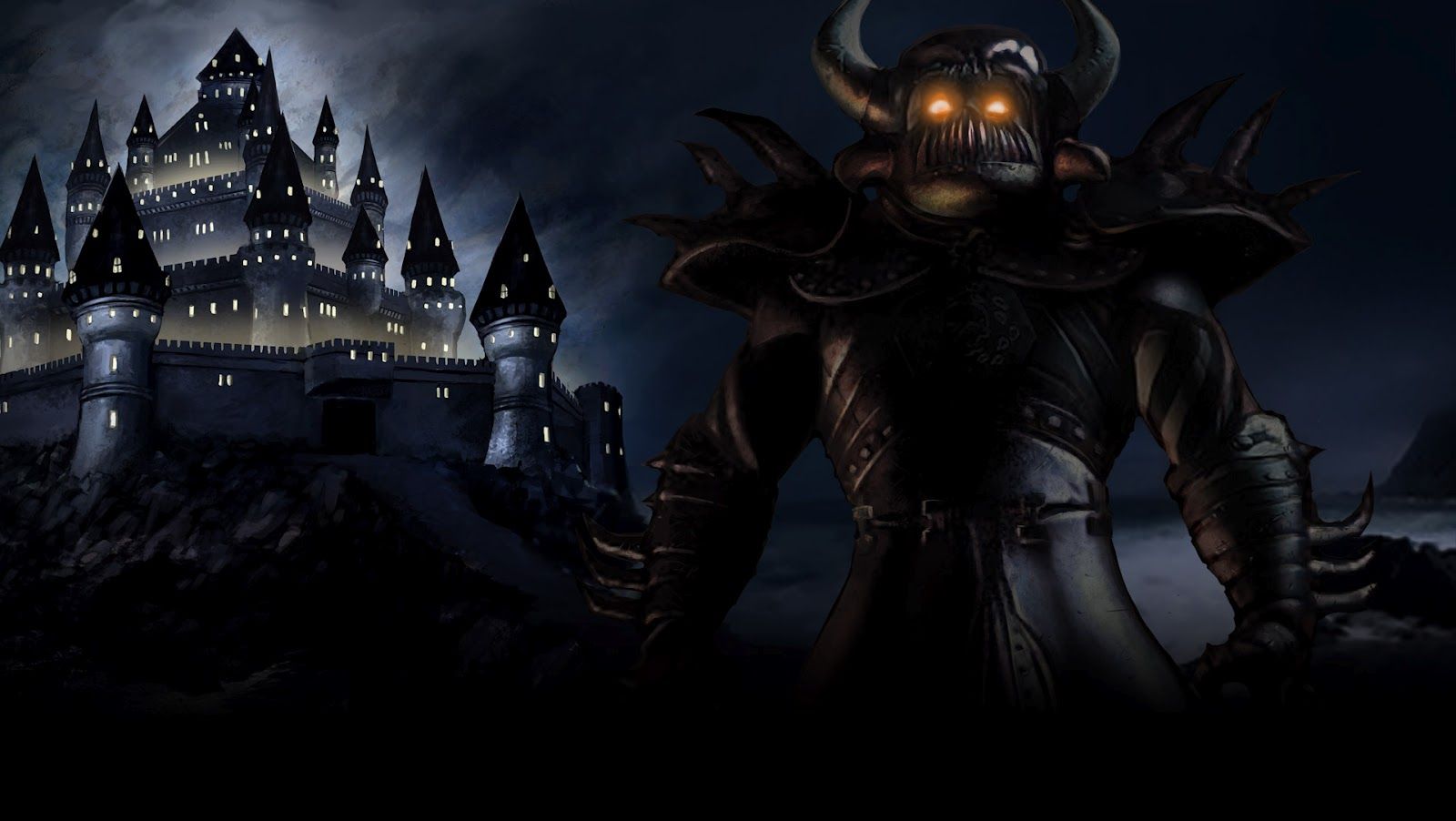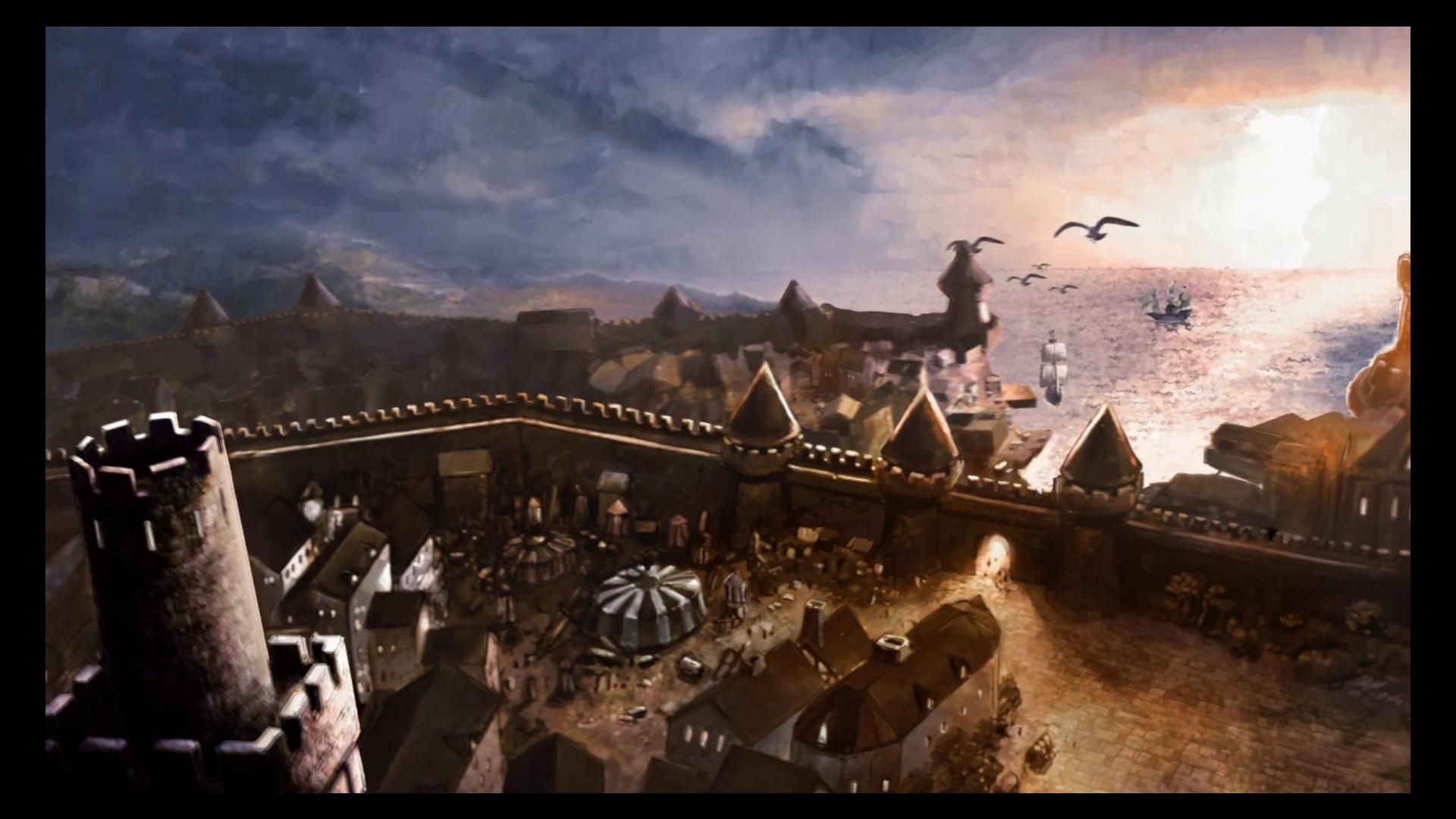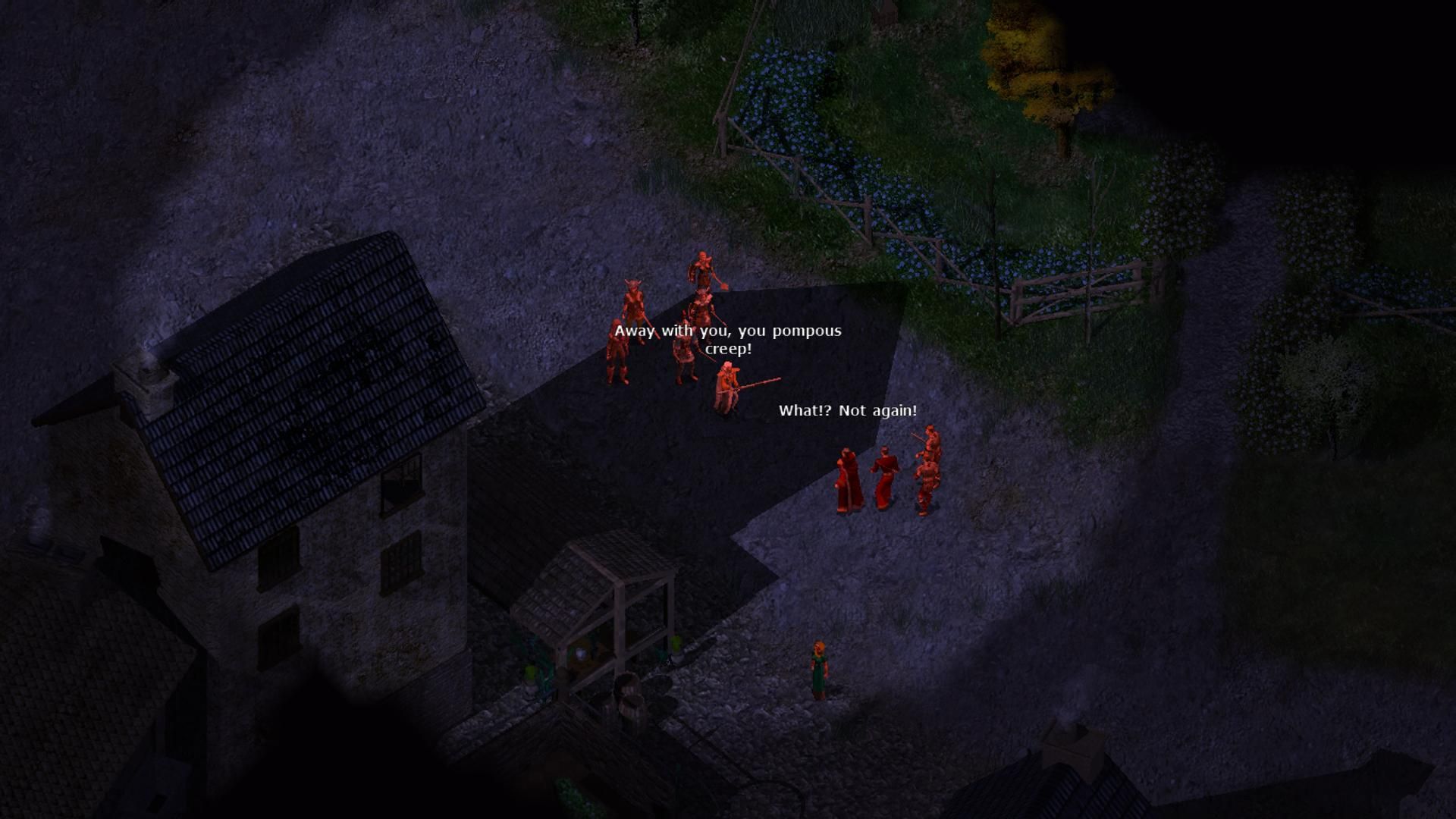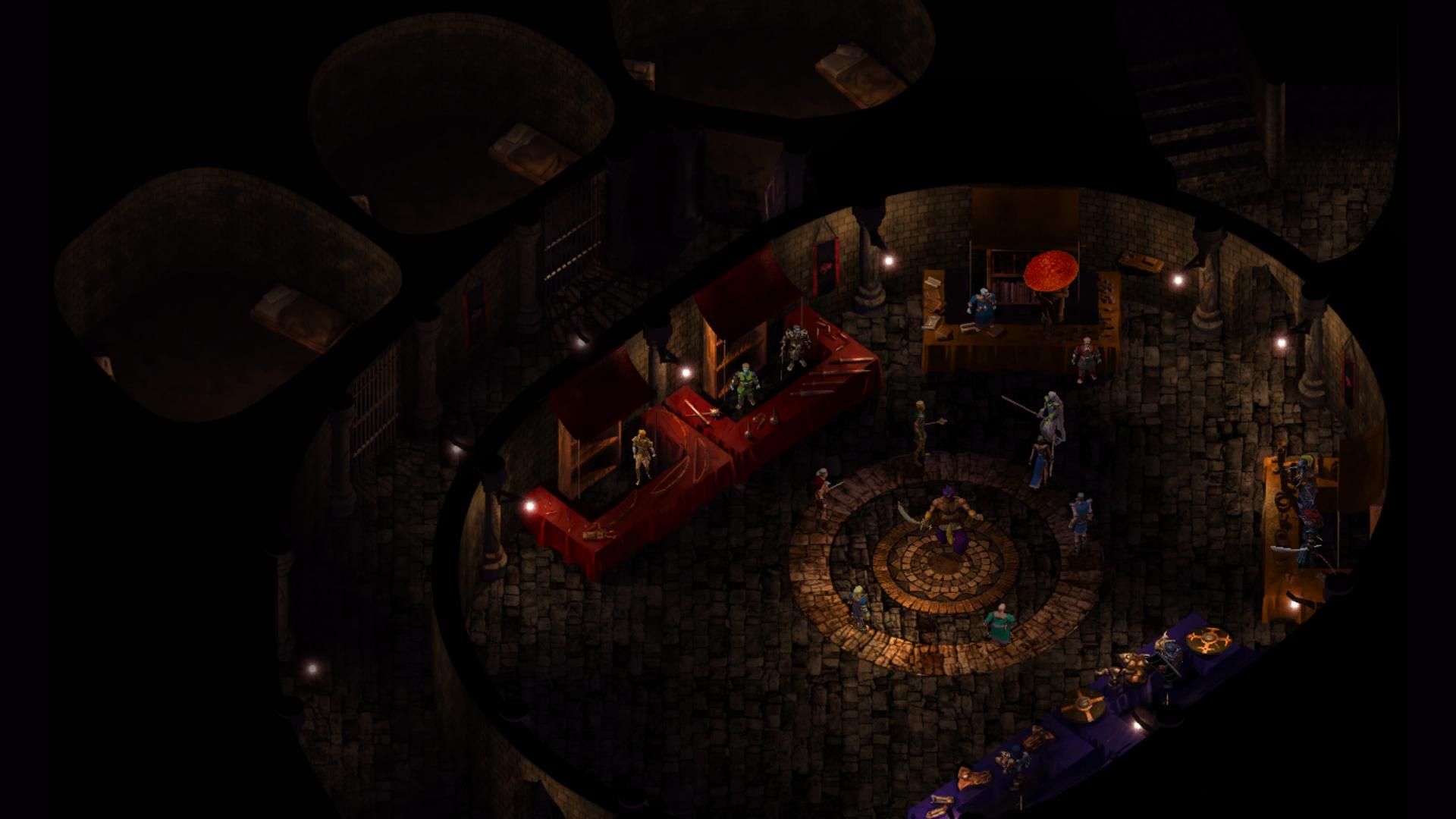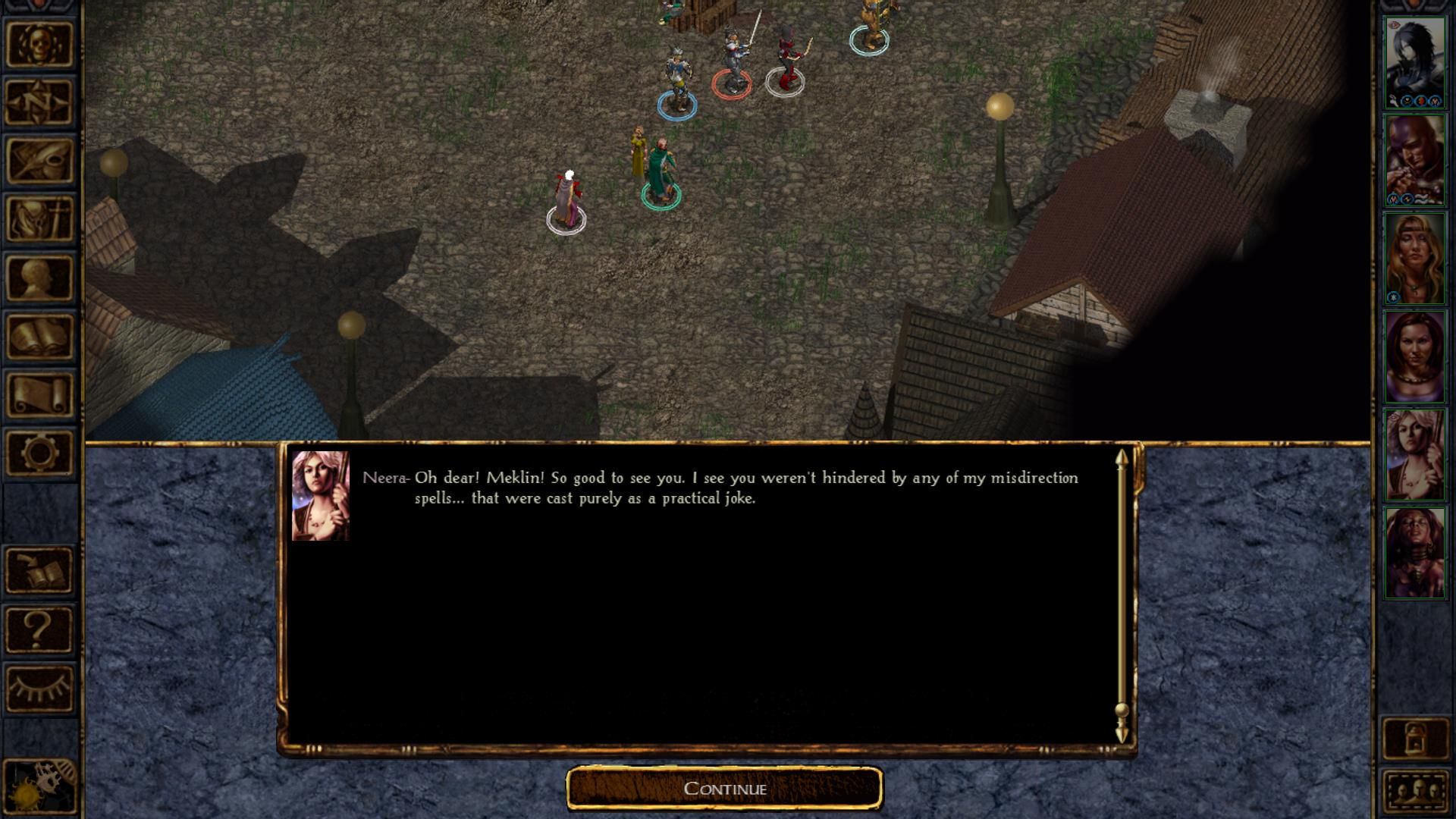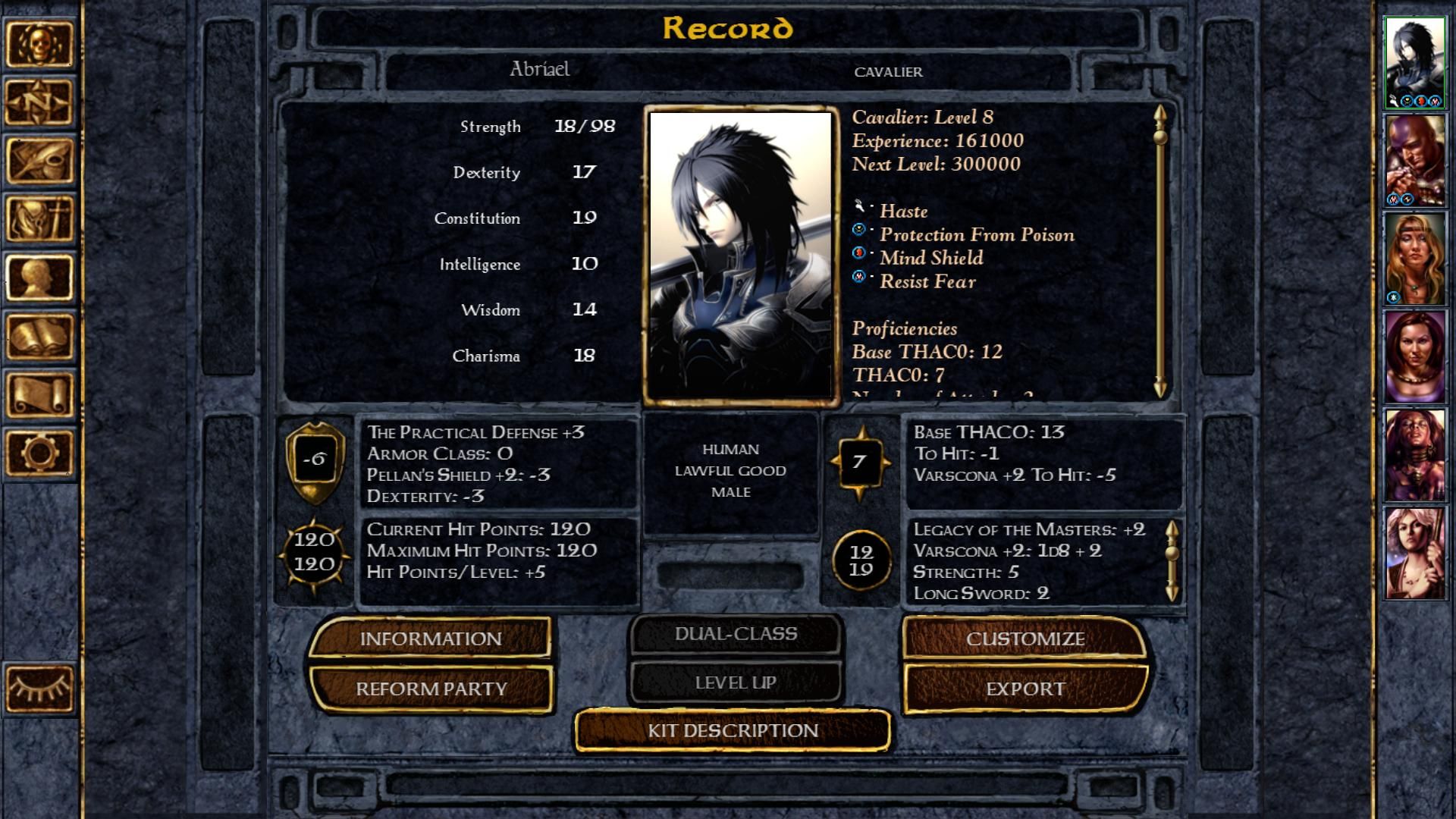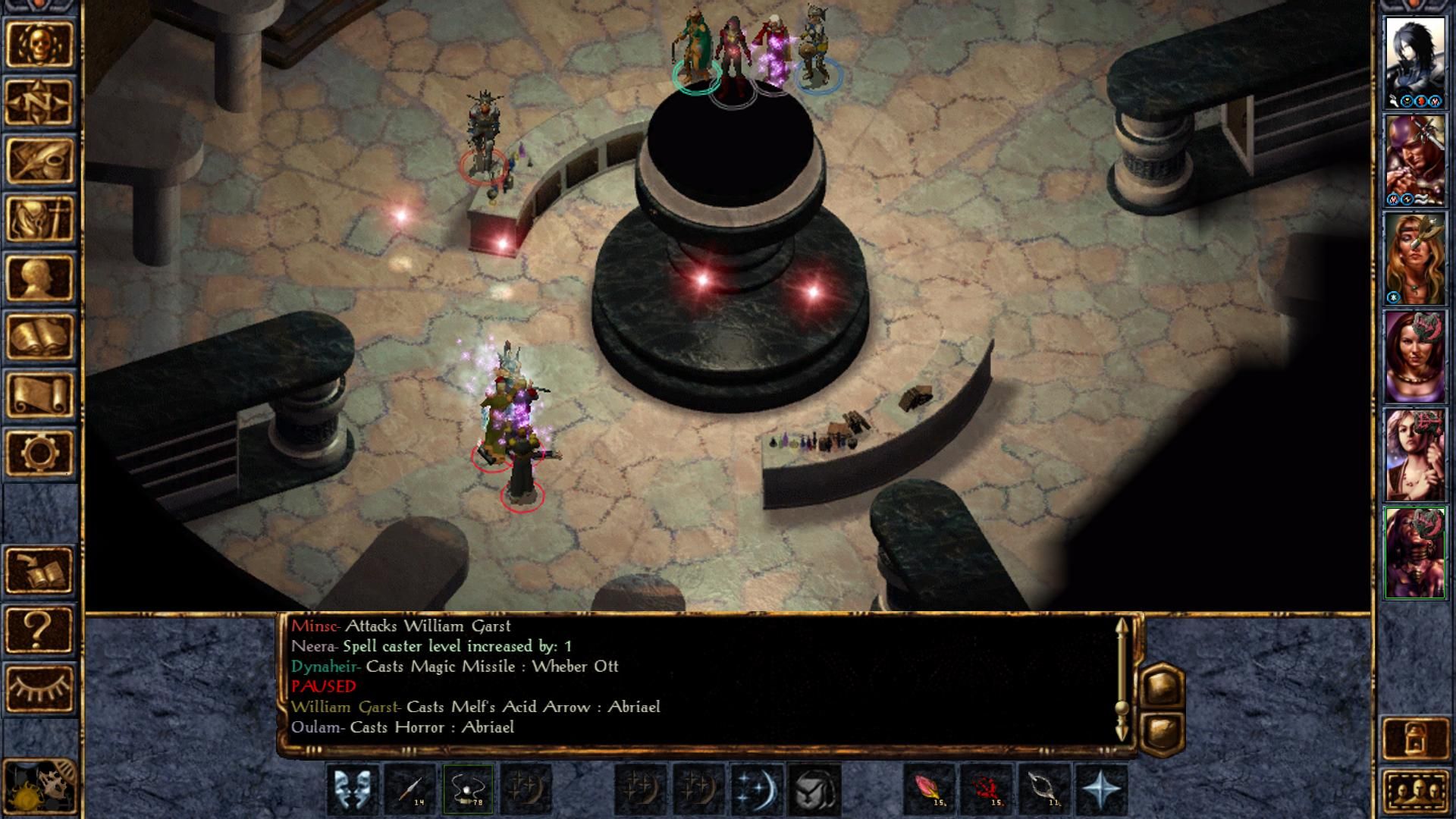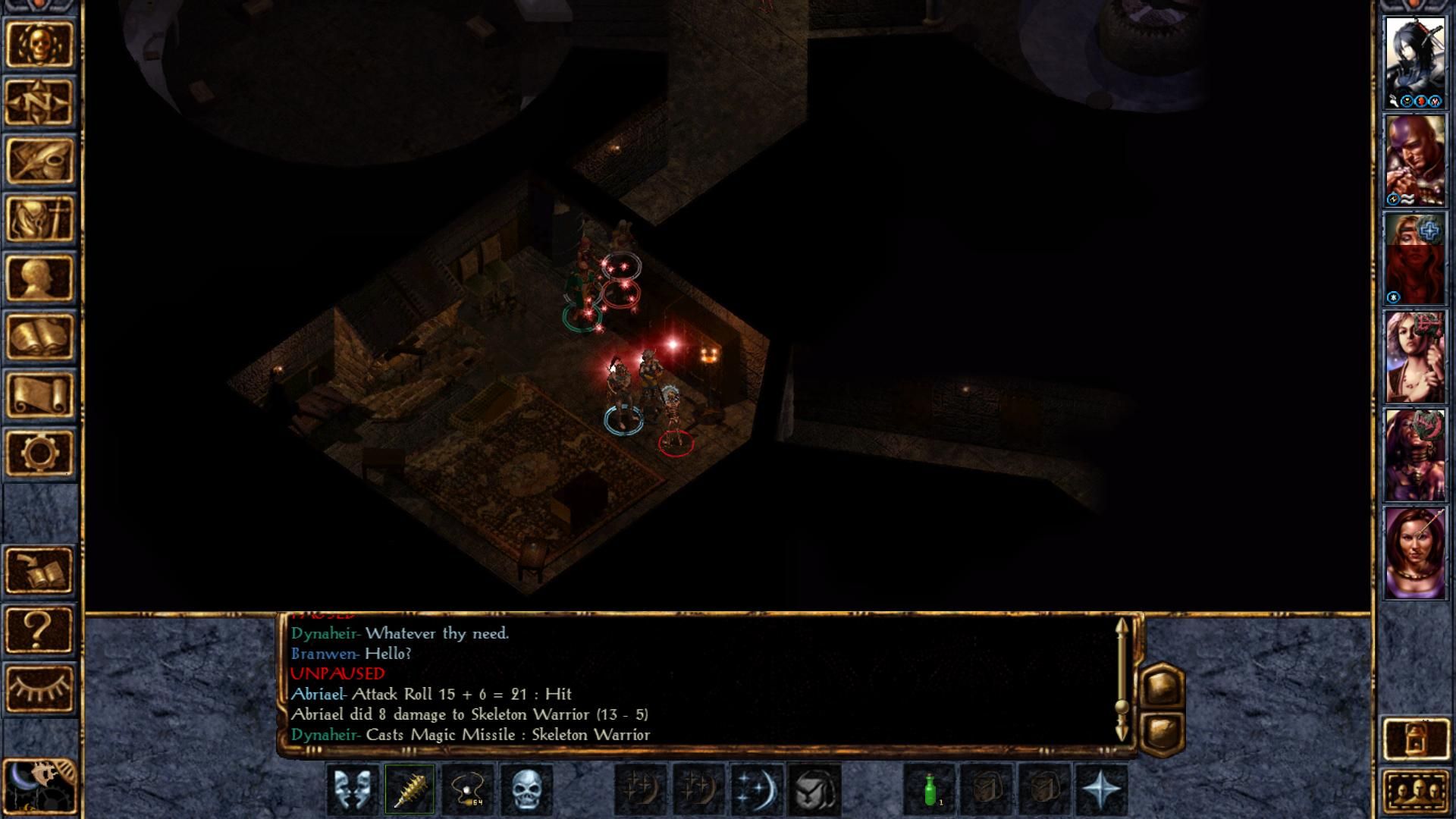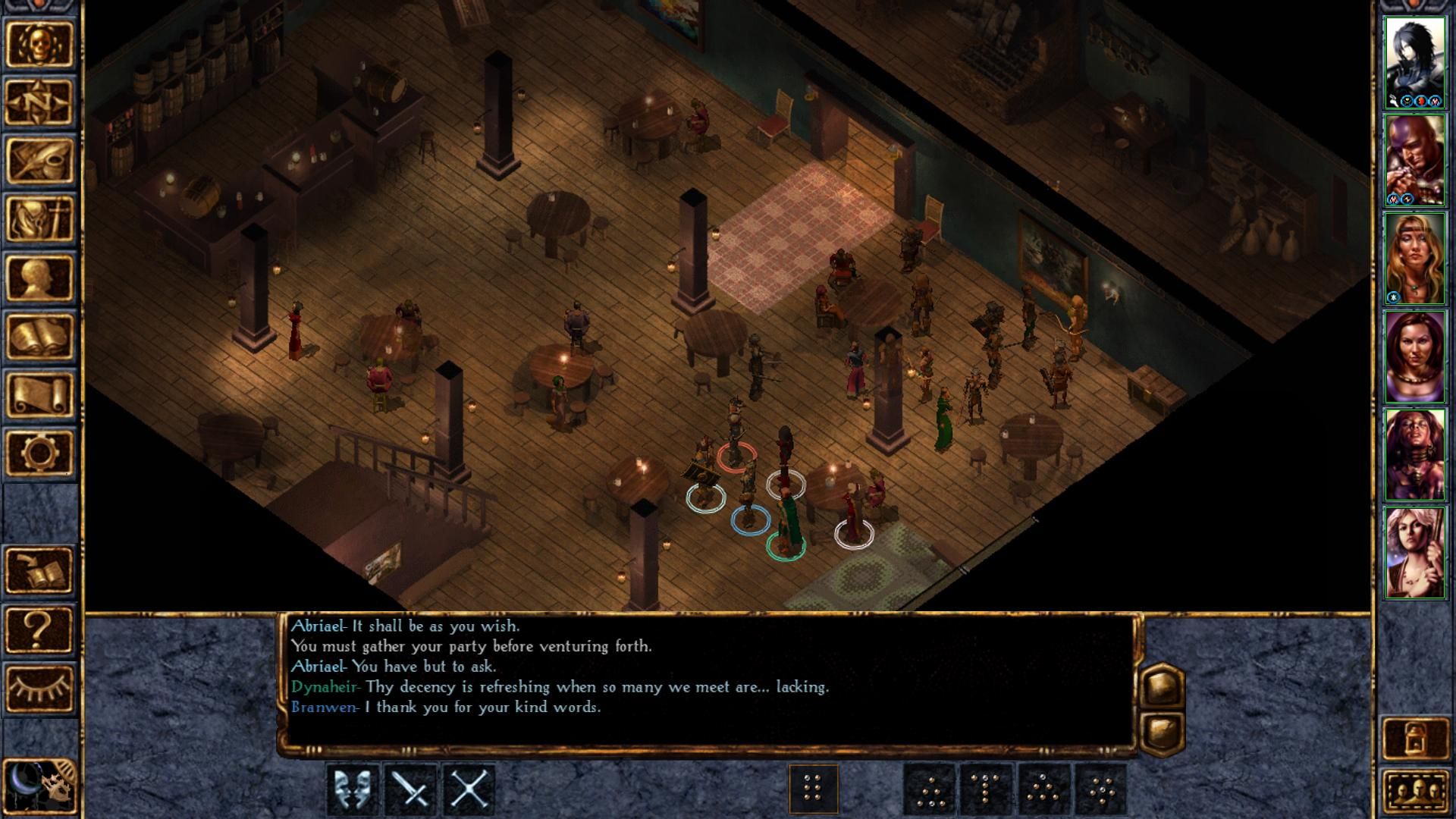A little more than fourteen years ago my outlook on PC RPGs was forever changed by the Release of Baldur's Gate. Back then I was an avid player of the second edition of Advanced Dungeons & Dragons, and I felt that video games, while awesome, simply weren't able to reproduce the same level of enjoyment. Baldur's Gate was completely different from the games I had played before, as it paired perfectly the same AD&D rules I used with my pen & paper group with incredible writing, awesome characters and revolutionary (for the time) isometric graphics made possible by the Infinity Engine.
Then, as the years passed, further editions made my passion for Dungeons & Dragons waver and fade. It has never felt the same since it lost that "Advanced" from the title. But now Overhaul Games brought back Baldur's Gate with this Enhanced Edition, and with it the "advanced" simplicity of AD&D 2nd edition.
For those that lived under a massive rock in the last fourteen years, the story is deceivingly simple at the beginning, only to become delightfully complex as it progresses towards the end of the game (and into the sequel): the main character knows nothing of his parents and heritage, and has been raised since his earliest memories in the fortress of Candlekeep by the mage Gorion.
One fated day Gorion receives a letter and suddenly orders the protagonist to pack his things and prepare to escape Candlekeep, but as they leave the secure walls of their refuge, they get waylaid by a group of unknown enemies. Gorion sacrifices himself to protect his ward, and the young adventurer gets unleashed on the Sword Coast, with a nice portion of the most classic between the Advanced Dungeons and Dragons settings (Forgotten Realms) at his disposal.
Baldur's Gate's fantastic writing and deep story have always been some of the best in the genre, and still have few rivals today. Quite obviously they are the elements of the game that aged the best, alongside with the incredibly colorful and diverse cast that will bring more than a smile to your face. There's no way to avoid laughing at Minsc's "dialogue" with his "miniature giant space hamster" Boo, or at Jaheira's attempts to flatter you in the most lopsidedly backhanded ways.
It's to that great cast that Overhaul games made it's most visible and welcome additions, with the implementation of three new followers: Neera the half-elf Wild Mage, Dorn Il-Khan the half-orc Blackguard and Rasaad yn Bashir the monk. All of them come with their own fully voiced storyline and new location (that unfortunately you will enjoy only if you play extensively with them), and they're fantastically written to match the style of the original game perfectly.
Neera is definitely my favorite, not just because she's helplessly charming and her writing is probably the best and most hilarious between the three, but also because dragging a Wild Mage around is a lot of fun, with all the unexpected effects she can trigger to spice things up quite a bit. She's probably the best single addition to the game in this Enhanced Edition.
A second very visible addition is the Black Pits, a stand-alone adventure that puts you in the worn-out shoes of an enslaved gladiator, forced to fight into fifteen battles of increasing challenge for the amusement of the drow entertainer Baeloth and his audience.
The Black Pits does well in matching the writing quality of the original, and Baeloth himself is one of the funniest characters of the game, even if repetition can become a problem with the hardest battles that you'll probably find yourself doing over and over in order to succeed. It's a bit of a pity that it's a completely stand-alone module and that it isn't better integrated with the game's story, but the ability to import and export your hero and to fully customize the party (which isn't included in the original game), make up for that at least in part.
Baldur's Gate had impressive visuals at the time of its release, but of course it does feel its age nowadays. We're talking about an "Enhanced Edition", and definitely not about a full remake. That means that the graphics have been slightly polished and retooled in order to display higher resolution backgrounds and support widescreen aspect ratios, but the game definitely looks and feels like a game from a decade ago.
This definitely shouldn't discourage you, though, as the strong point of Baldur's Gate's visuals was never in bleeding edge graphics, but in its absolutely lovely art direction and inspired design. Those didn't lose much of their shine today, and still manage to portray a charming, big and very enjoyable world. Just be sure not to abuse the newly introduced (and quite useless) zoom function, unless you're very tolerant of extremely big pixels.
What went through the biggest change is the UI, that still looks a bit pixelated, but it's definitely cleaner and crisper than the original, even if it suffers from an excess of empty areas at the higher resolutions. Maybe a bit more effort should have gone into better integrating the "old style" buttons with the background.
What definitely didn't lose its charm is the game's audio, with an absolutely epic score completed by a few new tracks by Mass Effect Composer Sam Hulick, that managed to match the original style quite perfectly. Voice acting is also very well performed for a game of Baldur's Gate's age, and the voices of the new characters are even better, with well delivered lines and witty acting that will make you love the new additions. The fact that their storylines are fully voiced, as opposed to the original content's characters that speak only a few lines of the actual script, is quite welcome.
This Enhanced Edition boasts "over 400" improvement and fixes over the original game, and despite my almost irrational adoration for Baldur's Gate, I can't deny that it was, under the hood, extremely bugged (and it was partly left so by BioWare in an era when gamers were definitely more tolerant of the occasional glitch), so the fixes are definitely welcome. Unfortunately Overhaul Games seems to have introduced quite a lot of new problems while getting rid of the old ones. Luckily they aggressively and quickly worked to address them post-launch, and now the game is a definitely smooth and enjoyable experience from a functional point of view.
Character creation is the classic one from the late 2nd Edition of Advanced Dungeons & Dragons, including the delightfully old school process of rolling for your stats over and over until you get the desired values. It kind of throws balance into the bin, but it's fun in a rather paradoxical way to continue rolling until you're satisfied. Overhaul Games also integrated the classes present in the original game with the Kits (basically class specializations) that were introduced in Baldur's Gate II, augmenting the depth of character customization by a welcome bit.
As you play you can enjoy the depth of the classic AD&D progression system, that gives you quite a lovely amount of freedom in customizing your character and his followers, including the ability to dual class and multi class. For instance if you don't like keeping Imoen as a pure thief, you can dual class her to a mage to give her an additional punch in battle, without losing her almost essential ability to unlock chests and find and disarm traps. What you can do is somewhat limited by the rather low level cap imposed by the game, but it'll find its full potential when you'll export your characters into the upcoming Enhanced Edition of Baldur's Gate II.
Battles are the heart of the Baldur's Gate gameplay, and let me tell you, if you're used to the level of difficulty of modern games you're in for a bit of a shock. The game is not easy in the least and, unless you're massively overleveled, requires a very tactical and reasoned approach to most encounters. This is where the Bread and Butter of Baldur's Gate comes into play: the pause.
While the game's battle system is most definitely in real time, it still takes a page from turn-based combat. As a matter of fact it does have turns (or more properly "rounds", as they are defined in AD&D lingo) during which characters execute actions, but they are normally played in sequence without apparent interruption or visual indication. Considering that you have to control up to six characters, letting the time flow normally is very inconvenient. Luckily you can simply pause the game and issue orders to all your characters.
As you unpause the game, characters will execute the actions you selected. They will do so immediately if they still didn't act during that round, otherwise they will wait for the following round and then act (movement is not included in this rule, as it will always happen instantly). This creates an extremely deep and tactical combat system that relies heavily on situational awareness, positioning and even a bit of timing. This is especially true considering that many spells have an area of effect, and getting your companions out of the way just as that that heavy hitting fireball explodes is an extremely satisfying example on how you can use the mechanic to your advantage.
This system remains one of the most satisfying and beautifully executed RPG battle systems even today, mixing action and tactics in a way that isn't only perfectly balanced, but it also uses a very simple mechanic (the pause itself) to allow a level of tactical depth that is often overlooked by many of today's more action-oriented RPGs.
Unfortunately the many improvements included in the Enhanced Edition didn't really address some extremely annoying pathing and AI problems that force the player to do quite a lot of micromanagement in order to "force" his characters to move exactly where he wants to, without getting into harm's way in the process. In addition to that I often found my companions literally "losing" the script I had assigned to them and reverting to their default behavior, making things worse.
Longevity is another great aspect of this Baldur's Gate: Ehanced Edition, as summing up the original game, the Tales of the Sword Coast expansion and the new content, you'll easily reach more than a hundred hours of gameplay, this without counting replayability, guaranteed by the wide variety of characters you can create and companions you can use to form your group (28, including the new ones).
This without mentioning that the expansion includes Durlag's Tower, that is probably one of the most engaging, fun and hellishly challenging dungeons I ever played in a computer RPG. If there's something I'll never, ever get tired to do, is prowling the dark, trap-filled halls of Durlag's last resting place.
If I Imagine myself reviewing the game fourteen years ago, the number you can read at the bottom of this review would be a 10, no questions asked. But if we examine it today, most aspects have aged well but some didn't. Despite that, it's almost impossible not to recommend it to those that never played it, as Baldur's Gate is one of the founding pillars of the genre and is still extremely enjoyable nowadays.
Baldur's Gate: Enhanced Edition kind of lays in a grey area. It's a re-edition of a glorious, beautiful and extremely enjoyable game that everyone should play through at least once in his gamer life, but some might find it slightly lacking as a product, given that the "enhancements" may be arguably a little limited to justify a purchase, especially if you already own the original and can bring it up to par thanks to a large number of free mods.
Ultimately, though, if you want to relive a classic that helped shaping a whole generation, there are very few other games I would recommend as much as this one. It may not reach the level of polish and shine to which we're used in nowadays' games, but it makes it up with unmistakable charm, great writing, classic atmosphere and an absolutely stellar cast of characters. It's Baldur's Gate. And that's plenty.

